LATEST INSIGHTS
Your Present Location: LATEST INSIGHTS-
An Open Letter to the People of the United States From 100 Chinese Scholars
2020-04-03 -
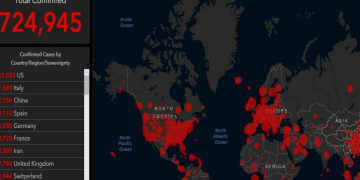
Ong Tee Keat: Covid19 Outbreak --- A Test to Global Governance
On March 11th, 2020, Robert Redfield, the director of US Center for Disease Control &Prevention (CDC), dropped a proverbial bombshell when he testified to the US Congress admitting that numerous virus deaths might have been miscategorized as flu. This belated admission of misdiagnosis has further lent credence to the earlier speculation that many pulmonary fibrosis cases, which resulted in deaths due to patients' inability to breathe, might in fact have been caused by coronavirus.
2020-04-02 -
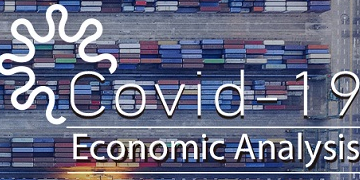
He Weiwen: China-U.S. trade ties face new challenges amid COVID-19 pandemic
The unprecedented COVID-19 pandemic is changing the world at a rapid pace. Shortly after China encountered the outbreak, the rest of the world is under the influence of the rampantly spreading virus, with total cases excluding China surpassing 777,000 as of March 31.
2020-04-02 -

John Ross: Human life must trump economics in a pandemic.
The pandemic has a clear global course. Despite the coronavirus outbreak beginning in China, Beijing has brought it rapidly under control – the number of domestically transmitted cases was reduced to virtually zero by the end of March. In the US and Western Europe, on the contrary, the number of cases is rising vertiginously with no peak in sight.
2020-04-01 -

Experts call for int'l cooperation, coordination to offset economic impact of COVID-19
At a think tank webinar held Monday, international experts called for countries across the world to cooperate and coordinate their actions to counteract the economic fallout of the coronavirus pandemic that has affected the lives of millions of people.
2020-04-01 -

Wang Yiwei: China’s anti-virus aid out of goodwill, responsibility, not atonement
China's behavior throughout the outbreak has demonstrated that it takes its international responsibilities seriously, as is commensurate with its status and with Chinese traditions. It is in no way some kind of "atonement" for some "crime" which the country has never committed.
2020-04-01 -
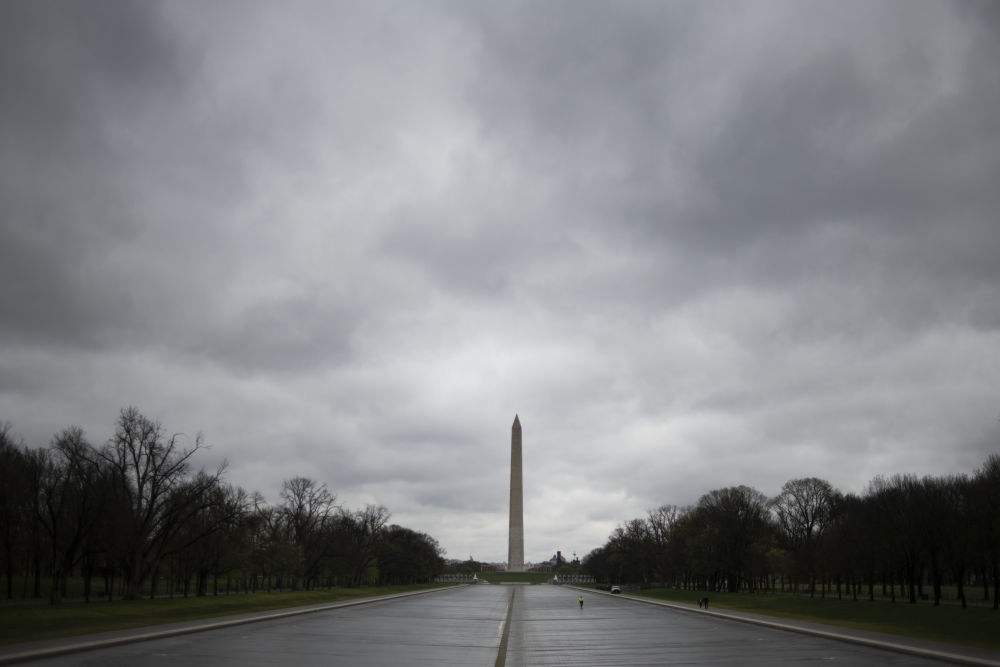
Wang Wen: COVID-19 blunders signal end of ‘American Century’
For most people it's unfathomable that the fight against the COVID-19 pandemic is the first global event that hasn't been led by the US since 1941. In 1941, the US was a leader in the worldwide antifascist war. During this current global fight against an invisible enemy, the US is hardly able to protect itself. The US should have been much better prepared for the outbreak considering the coronavirus came to its shores after it had rampaged through China, Japan, South Korea, Iran, Italy, France, Germany and Britain.
2020-03-31 -
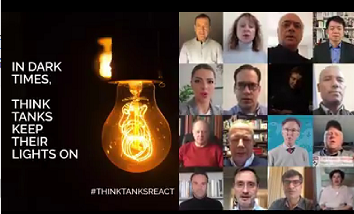
Global Think Tanks are taking action to cheer for the anti-epidemic War
Think Tanks React campaign was published by ISPI Think Tank. It is show that a wave of solidarity among the Think Tank community to show how strong and united we are, even in dark times!
2020-03-31 -
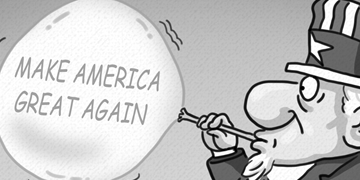
Wang Wen: COVID-19 blunders signal end of ‘American Century’
For most people it's unfathomable that the fight against the COVID-19 pandemic is the first global event that hasn't been led by the US since 1941. In 1941, the US was a leader in the worldwide antifascist war. During this current global fight against an invisible enemy, the US is hardly able to protect itself. The US should have been much better prepared for the outbreak considering the coronavirus came to its shores after it had rampaged through China, Japan, South Korea, Iran, Italy, France, Germany and Britain.
2020-03-31 -
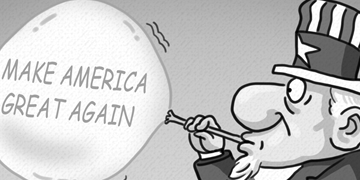
Wang Wen: COVID-19 blunders signal end of ‘American Century’
For most people it's unfathomable that the fight against the COVID-19 pandemic is the first global event that hasn't been led by the US since 1941. In 1941, the US was a leader in the worldwide antifascist war. During this current global fight against an invisible enemy, the US is hardly able to protect itself. The US should have been much better prepared for the outbreak considering the coronavirus came to its shores after it had rampaged through China, Japan, South Korea, Iran, Italy, France, Germany and Britain.
2020-03-31 -
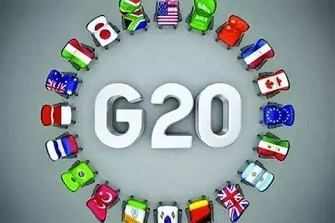
William Jones: G20 Teleconference Creates New Opportunities
The Chinese word for “crisis” is composed of two characters that respectively signify “danger” and “opportunity.” The coronavirus pandemic has indeed alerted the world to the “danger” lurking amongst us. But the G20 Extraordinary Leaders’ Summit on COVID-19 of March 26 represented a real "opportunity” to advance a coordinated global response to the outbreak, and to create also a new paradigm for humankind to overcome the drawbacks and dangers implied by the prevailing geopolitical status quo.
2020-03-30 -

Stimuli to protect against contagion
China may begin to carry out newly announced economic stimulus measures as soon as April to help shore up domestic demand and achieve economic development goals, economists said on Sunday.
2020-03-30 -

COVID-19 road to recovery: What we need to learn from China
Restore, repair, revive, resuscitate or remodel? These 5Rs define business investment decisions and are a precondition for the big R: Recovery. Examination of China's economic and business response provides clues as to how local businesses may survive, and which businesses are better investments at current sell-down prices. Western economies can and must learn from China's experience.
2020-03-30 -

Fed's currency swap deal threat to global financial order
"The recent market meltdown on Wall Street has implied underlying problems of the US economy, such as the distorted relationship between the stock market, the central bank and the government", Liu said. Yet the US economic fundamentals, underpinned by the three pillars of military, technology, and pharmaceutical industries, are still solid despite the recent market slump.
2020-03-30 -

US feared as next epicenter
Experts warned that the US medical system may collapse if millions of patients flood hospitals due to a serious lack of beds, ventilators and medical staff. Experts cited slow government response and low detection rate for rapidly expanding infections in the US, urging the US government to launch more strict quarantine policies and pay more attention to rural areas, where medical conditions are comparatively poor.
2020-03-27 -

Liu Zhiqin: A Critical Year for China to Fight Covid-19 and Poverty
As the fight against the emergency of coronavirus draws to a close, China must carry on to fulfill other important tasks this year as planned.
2020-03-27 -
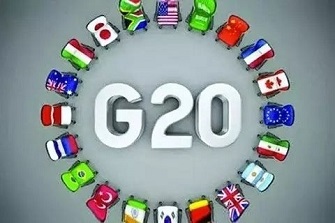
Zhao Minghao: The G20 summit is an urgent step in fight against COVID-19 and economy stabilization
The convening of the G20 emergency summit is a right and urgent step in increasing global coordination and stabilizing economic confidence on the fight against COVID-19. At present, the virus has spread to more than 150 countries, and nearly 500,000 people have been infected worldwide, with the number of confirmed cases and death still rising rapidly.
2020-03-27 -
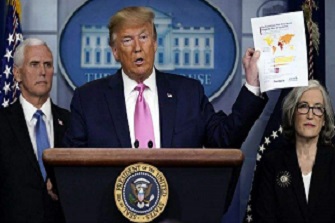
John Ross: US policy on China won’t changeTrump's anti-China coronavirus rhetoric will cost many lives
US President Donald Trump has launched xenophobic attacks on China over COVID-19 with only one purpose – to attempt to divert attention from his failure to prepare the US for the inevitable spread of the coronavirus. But this anti-China rhetoric will have serious consequences for the American people, leading to many lost lives. Trump’s attack on China is a futile attempt to head off what will be the inevitable verdict of history on a disaster for the American people. If continued, it will cost many American lives.
2020-03-26 -
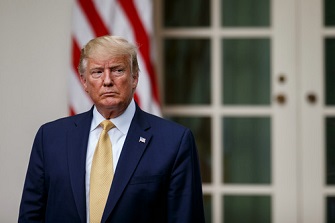
Wang Wen: Trump govt’s three big lies hurt Americans
The Trump administration's policies remain more focused on saving the stock market than people's lives. If the number of infected cases continues to increase and the death toll keeps rising, it won't matter how much money the government injects, and investors' confidence in the US stock market will not return. Even a child can understand this.
2020-03-24 -
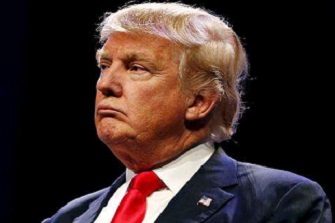
William Jones: Trump's blame game could put American lives at risk
Anyone who has watched Trump's daily briefings with the White House coronavirus task force he set up, can clearly see that the U.S. views this more and more as a zero-sum game with China, which through diligent efforts and the nation coming together, had succeeded in getting to a point where there are no, or very few, new incidents of the virus.
2020-03-23
























































































 京公网安备 11010802037854号
京公网安备 11010802037854号





